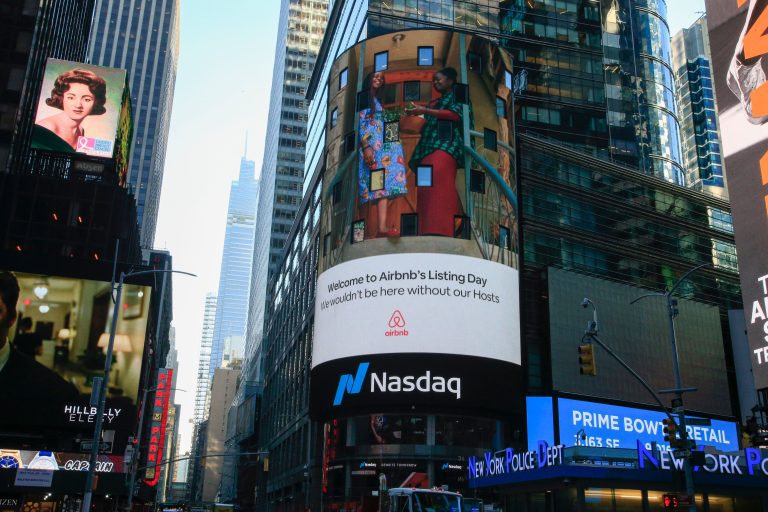On Sept. 5, the number of Airbnb rentals in the Big Apple is set to plummet after city authorities failed to issue licenses for thousands of properties.
According to market analytics firm AirDNA an estimated 13,500 properties in the city face delisting from the platform due to new rules that went into effect after Labor Day, which could wipe out 40 percent of all Airbnb revenue in the city.
City authorities gave owners who use home-sharing platforms like Airbnb and Vrbo until Sept. 5 to obtain a license to operate or else face delisting. However, to date, the city has only approved 257 rental host registrations out of 3,250 applications, Bloomberg reported.
The city says it implemented the new rules to ensure property owners adhere to strict occupancy regulations and building codes.
The backlog in approvals is leaving hosts in limbo, unsure how to proceed and fielding frantic calls from guests who have booked a stay.
Success
You are now signed up for our newsletter
Success
Check your email to complete sign up
Ilan Rabinovitch, who rents out a brownstone on the Upper West Side, told Bloomberg that he’s telling prospective guests that he doesn’t know if he will be able to fulfill requests and that “I’ll let you know if I ever get approved.”
Rabinovitch, and others in his predicament, face a $5,000 fine if they operate without a license.
Regulatory battle
Airbnb and city authorities have been grappling over regulatory issues for some time, with the city implementing different rules intended to reign in rogue operators.
For example, in New York hosts are only allowed to rent out their homes on home-sharing platforms for less than 30 days when a permanent tenant is occupying the property.
City officials say that many hosts disregard this rule and rent out entire buildings or the majority of suites to short-term tourists.
The new rules, Local Law 18, requires all short-term rentals in the city to register with the city and the host must live in the property they are renting and be present when someone is renting the property. In addition, the number of guests allowed is limited to two.
Theo Yedinsky, global policy director for Airbnb, told Wired, “[The rules] are a blow to its tourism economy and the thousands of New Yorkers and small businesses in the outer boroughs who rely on home sharing and tourism dollars to make ends meet.”
Ahead of the Sept. 5 deadline, Airbnb, along with three New York hosts sued the city in an attempt to quash the new regulations, however New York Supreme Court Judge, Arlene P. Bluth dismissed the lawsuits saying the new restrictions were “entirely rational,” AP reported.
In a 14-page ruling, Bluth said that hosts having to comply with the new regulations does not present an “overly onerous obligation” and that the regulations will help identify illegal short-term rentals before they are listed on home-sharing platforms.
“To be sure, these rules will likely not be perfect. But, it addresses a problem raised by OSE (New York City Mayor’s Office of Special Enforcement) and avoids a key obstacle — enforcing the ban on illegal short-term rentals,” she said.
From 2017 to 2021, the city received almost 12,000 complaints about illegal short-term rentals.
READ MORE:
- New York City Police Department Announces Open Registration for the Police Officers Exam
- From the North Sea to New York City: The Culinary Journey of Herring’s Seasonal Delight
- Zhile Cao Is Vying to Represent District 25 On New York’s City Council
Restore Homeowner Autonomy & Rights
A group of New York homeowners are rallying against the new rules, arguing that they unfairly include them with large landlords.
The group, Restore Homeowner Autonomy & Rights (RHOAR), says on their website that “Eliminating the option of short-term rentals, will threaten owners’ ability to cover their mortgages, possibly creating an additional housing crisis,” adding that, “The law and implementation of Local Law 18 takes away our autonomy over our homes and puts us at acute financial and personal risk.”
The group is lobbying city authorities to “correct” the new regulations and “return one and two-family homeowners our rights to have autonomy over our homes.”
They believe that if the City does not change course that it will drive out small homeowners to be replaced by more “luxury rentals,” further displacing “more of the city’s backbone of local neighborhoods.”
“Protecting NYC means protecting one and two-family homeowners,” they argue.
Questions are arising as to how to enforce the new rules. Dallas, Philadelphia and New Orleans have all passed similar ordinances, however according to Robert Frank, CNBC’s wealth editor, “so far they haven’t had much effect because they are so hard to enforce. This will be the test for New York starting today.”














